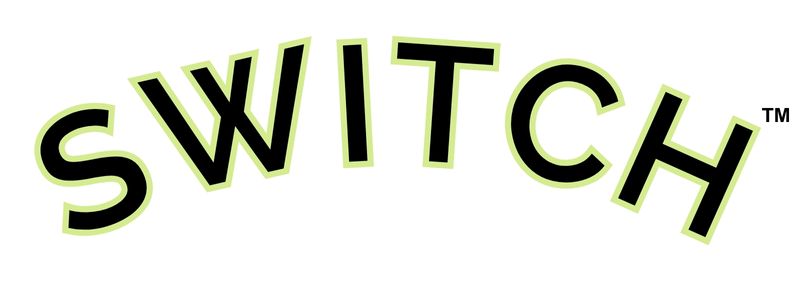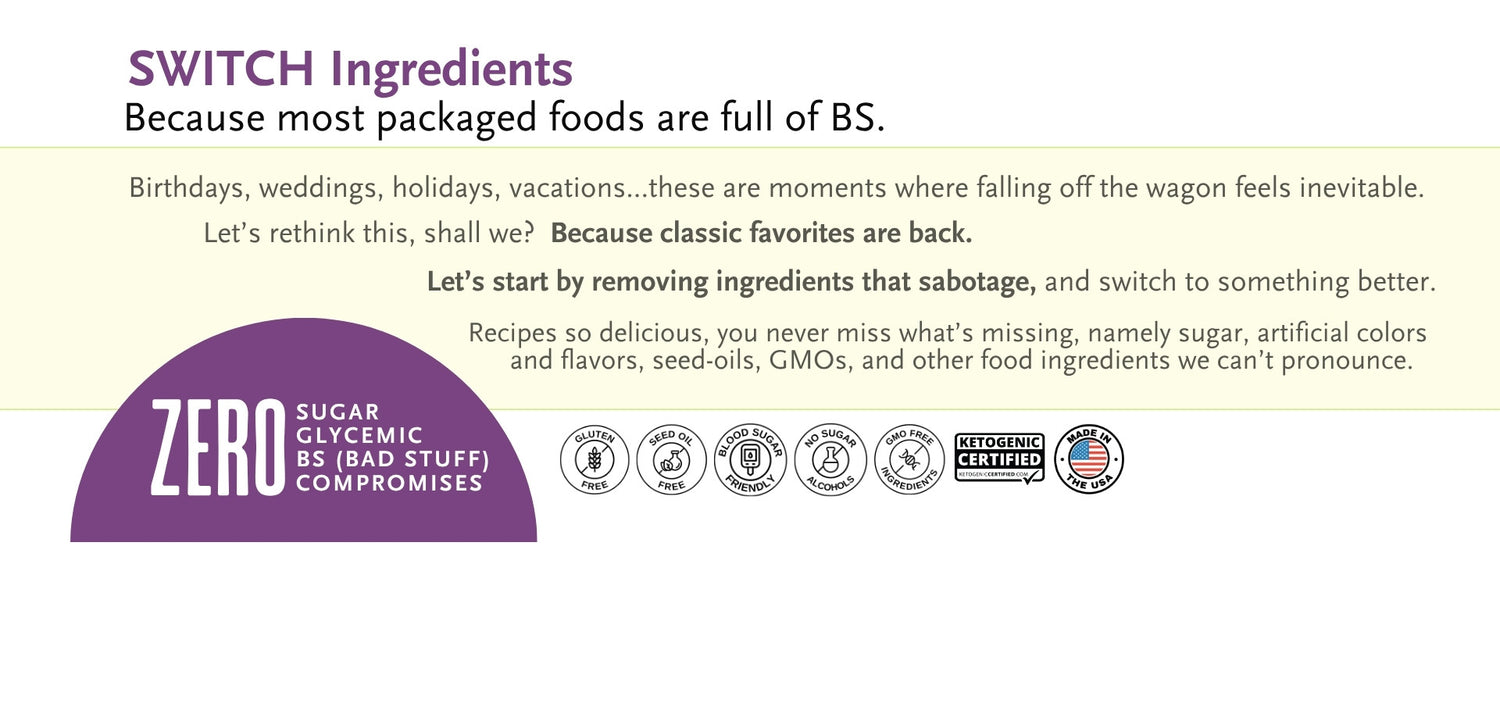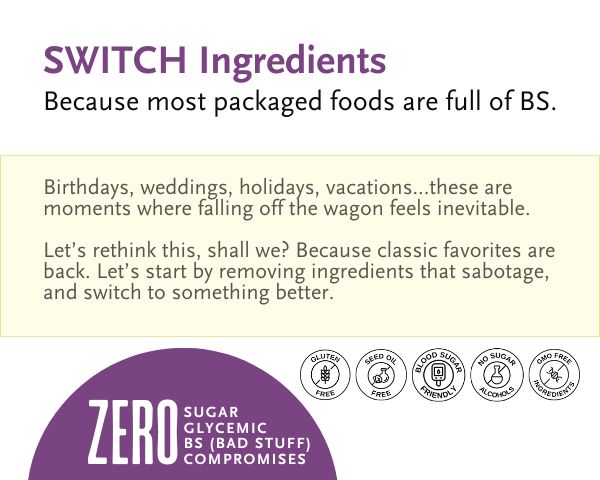Our Ingredients
Full disclosure. I started making these gummy bears in my own kitchen for purely selfish reasons.
"I wanted yummy gummy bears that were truly keto-friendly with no sugar because that’s how I eat. And I wanted a treat that I could give to my kids and grandkids with zero guilt."
I wanted a gummy bear made with zero BS (Bad Stuff). The BS are ingredients I avoid when shopping for my family. If it’s not good enough for them, it’s not good enough.
The BS (Bad Stuff)
- Sugar & Artificial Sweeteners
- Artificial Colors & Flavors
- GMOs & Glyphosate
- Seed Oils & Hydrogenated Fats
- Ingredients that spike blood sugar
- Ingredients we can’t pronounce
Also, made with food ingredients ideally not sourced from China.
This turned out to be tougher than we expected when we formulated this for commercial production. But, we’ve done a pretty amazing job.
We’ve created a zero-sugar gummy bear that’s not only delicious but made with ingredients that tick all the boxes–including multiple functional ingredients that are suitable for diabetics and a ketogenic diet.
Every ingredient serves a purpose. No fillers. No unnecessary anything.
Gummy bear-making is a pretty no-nonsense activity, but when you take away the sugar part, it changes everything.
Still, we figured it out, and with ingredients we can feel comfortable being completely transparent about.
We applied the same philosophy with our caramels, and then our best selling pancake syrup.
Scrummy Gummy Bears
Switch to better!
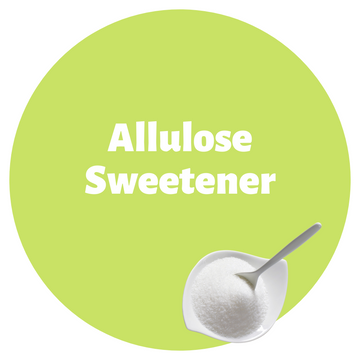
Allulose Sweetener
Allulose is newer to the sugar alternative stage. It acts like sugar when cooking or baking, which makes sense because it is actually a naturally occurring rare sugar found in tiny quantities in certain fruits like raisins or figs, molasses, and beets.
It is a monosaccharide that is very similar in structure to fructose, but it is not metabolized by the body. In fact, it’s passed through the urine weirdly with zero impact. Pretty cool, eh?
Benefits of Allulose Sweetener Based on Clinical Studies
There are studies that indicate that allulose can reduce insulin response, assist in metabolizing sugar and carbohydrates making it suitable for diabetics, keto or any sugar free lifestyle.
You can read about those here:
Anti-Diabetic Effects of Allulose
Allulose Study Lowers Insulin Response
I also wrote a detailed blog post detailing the benefits of allulose and what it is.
Our allulose is Non-GMO.
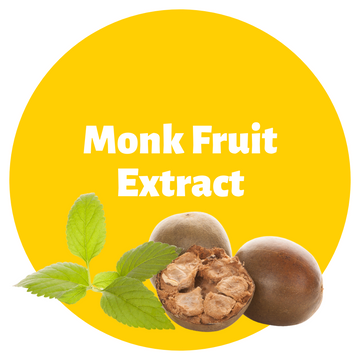
Monk Fruit Extract Sweetener
Our gummy bears are sweetened with allulose. But, since allulose is only 70% as sweet as sugar, we needed a little oomph. That's where the touch of monk fruit comes in.
If you aren't familiar with monk fruit extract, it comes from a gourd fruit called luo han guo, and has been used for thousands of years.
It is zero on the glycemic index making it a great sweetener for diabetics and people who want a healthier, sugar-free lifestyle.
It's a high-intensity sweetener, so a little goes a long way. When it's married to allulose, it actually creates a pretty close replacement for sugar in terms of flavor and usage.
Benefits of Monk Fruit Extract Based on Clinical Studies
Monk fruit also has some amazing metabolic advantages in studies and has even been considered a beneficial ingredient for diabetics (see articles below from Diabetic publications). It truly is an awesome sweetener alternative to sugar.
Monk Fruit Extract for Diabetes
Why Monk Fruit is a Power Food for Diabetes by The Diabetes Council
Sweeteners: Monk Fruit Diabetic Self-Management
We sourced a monk fruit sweetener from a company that manages every aspect of the monk fruit process from seed to harvest, processing, packaging, and delivery. It is also Non-GMO Project Verified.
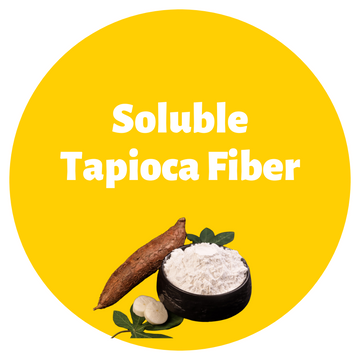
Resistent Dextrin aka Soluble Fiber
Soluble Fiber
Our gummies are made with Soluble Tapioca Fiber (NOT Isomalto-oligosaccharide or IMO).
Tapioca is made from the cassava root.
It's a true soluble fiber, and has passed many blood sugar response tests. We, of course, recommend testing our products on yourself.
The reason soluble fiber is a popular ingredient in most keto-friendly foods is according to numerous studies, it forms a gel in the digestive tract, feeding good gut bacteria, slowing blood sugar response, binding to bile acids (which has been shown to help lower bad LDL cholesterol) because it prevents the fatty acid from being absorbed into the blood stream, and it helps “move things along”, all while not being absorbed by the body.
We chose soluble fibers that are true fibers, and significantly more tolerated than most other soluble fibers. In fact, studies indicate that the norm for tolerance of our chosen soluble vegetable fiber is 68g a day. As a comparison, other soluble fibers like inulin or chicory root have a tolerance level of 10-15g a day. Others have even less.
The soluble fibers we use have documented benefits backed by science.
Here are a couple of resources for yourself:
Fiber: The Carb That Helps You Manage Diabetes
We chose only true soluble fibers that pass through the body without being absorbed or negatively impacting blood sugar.
This is an ingredient we researched in detail, reading many articles and studies, testing blood sugar response with various fibers, and in the end, decided this was an ingredient worth including in our products to help assist the journey of better metabolic health.
I even wrote a detailed blog post with references on the benefits of soluble fiber.
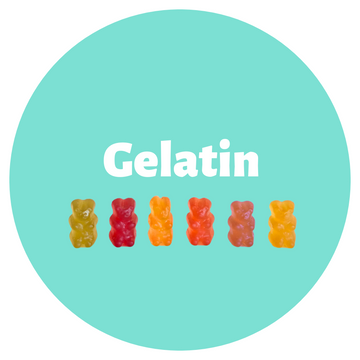
Gelatin
Traditional gummy bears have always contained gelatin since the very early recipes over 100 years ago.
It's the one ingredient that creates the gummy texture that most people love. It also happens to be an excellent source of protein and because it's derived from collagen, it helps with connective tissues, skin, hair, and the gut lining.
On a personal note, one of the reasons I started making gummy bears in the first place was to get additional collagen into my diet in a fun way.
This is not a vegan-friendly ingredient as it’s typically gotten from the rendered hide of cows or pigs (and even fish). Ours is porcine gelatin because we could not get the beef gelatin to work no matter what we did (and we really tried). We also could not find non-GMO verified gelatin anywhere. We almost abandoned bringing these to market altogether because of that one point.
However, it turns out that our gelatin is 3rd party tested and verified to be 100% free of residual glyphosates (which is the biggest problem with GMOs).
Benefits of Gelatin According to Experts and Based on Clinical Studies
There are numerous articles and studies that indicate that gelatin has health benefits including improving hair, skin, nails and rebuilding cells. But also in helping to reduce inflammation and improve joint pain. The article below covers all these points with numerous citations included.
This is a great article on the many benefits of gelatin from Medical News Today. There is no gelatin in our caramels or pancake syrup (obviously).
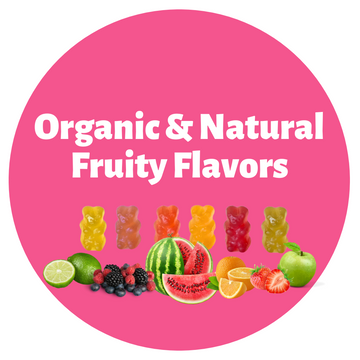
Organic & Natural Flavors
Generally speaking, we try to eat whole foods. But this is candy.
Sugar-free or not, it’s intended to be a candy treat without the guilt. And candy traditionally comes in many, many flavors. And let’s be honest, most people love them.
Artificial flavors were never on the table. For many reasons. Sure, they’re dirt cheap. Sure, they last longer and are more intense. But ingesting chemicals is not something we would do willingly personally. And it isn’t something we would feed to our kids (or grandkids).
But, it turns out “natural flavors” can have a lot of nonsense in them too. So, we opted to go organic and had our flavors custom formulated with a strict list of no-no's.
No maltodextrin, polysorbate 80, GMOs, allergens, or ingredients that could spike blood sugar or affect ketosis. And we replaced any seed oils (that are often the carrier) in natural flavors with MCT oil instead.
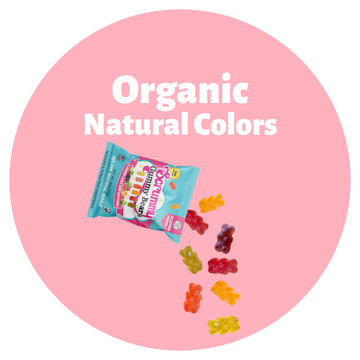
Organic Natural Colors
Colors. Oh boy. This was an adventure. There’s a reason artificial colors are the go-to in the candy industry. That pop of artificial color is unmistakable. But the toxicity of many of these man-made colors, along with the sensitivity to artificial colors and potential reactions are not worth it.
So, we opted for natural colors, which led down a whole other rabbit hole in terms of sketchy.
There are a lot of different kinds of “natural colors” and we did a deep dive into a number of them. We learned that all kinds of shady ingredients are often hidden in "natural colors" that don't even have to be declared on your ingredient label. Ugh.
And of course natural colors are way more sensitive to light and heat, and acids. So yeah. It was work.
BUT, we finally settled on some gorgeous organic natural colors from real fruit and vegetable sources, without added fillers or hidden garbage ingredients. And, we opted for organic because natural colors (even from fruit and veg sources) can be extracted using toxic chemical extractors like hexane. No thank you.
We're proud to say that our fruit and vegetable colors are from real organic fruit and vegetable sources, extracted with pressure and water only. I mean, look at these colors! #whoneedsartificialcolorsanyway
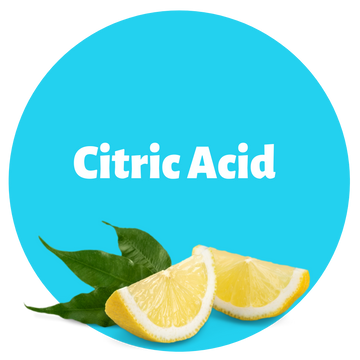
Non-GMO Citric Acid
Look on any candy label and you’ll find citric acid on the list of ingredients. There’s a good reason for that. Acids add that bit of flavor oomph. When used in the correct ratios with sweeteners and flavors, they can enhance a flavor and complement a sweetener. I can vouch for this because we made a batch of strawberry gummy bears and I forgot to add the acids and it was terrible. Like, terr-i-ble. And, of course, our citric acid is non-GMO.
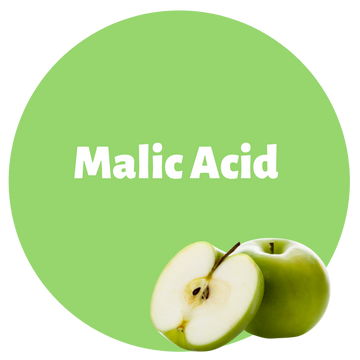
Non-GMO Malic Acid
Different acids provide different boosts depending on the flavor. For example, apples have a naturally higher amount of malic acid in them. So do some berries, while lemons and oranges have a higher amount of citric acid.
Of course, we use natural malic acid in any of our products (not DL-Malic Acid which is a cheaper version most candies use, and has synthetic components). Only the good stuff here.
There’s a lot of science to this that we learned about. In fact, we even consulted with a flavor specialist in the formulation of our flavors to ensure we got our ratios and acids perfect.
Based on taste-tests, it seems we nailed it.
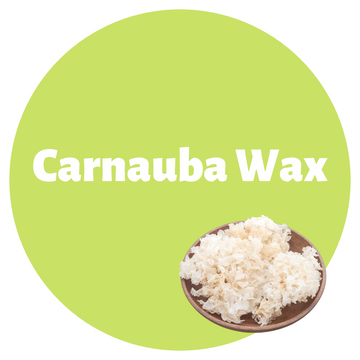
Non-GMO Carnauba Wax in an MCT Oil Base
Well, that’s a mouthful, isn’t it? So, what does that actually mean?
Well, carnauba wax is the slightest sheerest coating that is added in a super fine mist at the very end of the whole gummy bear-making process. It’s used to seal the gummy bears for freshness, prevent sticking, and increase their shelf-life. There’s such a small amount, it’s the last ingredient on the nutrition label.
Carnauba wax comes from the leaves of the carnauba palm tree, native to Brazil. It’s a harder wax, and when used in gummy making, it requires some kind of oil as a carrier. We really did not want to use a seed oil in our formula if we could avoid it because seed oils can increase inflammation. We also didn’t want to use mineral oil for the same reasons.
Besides, according to science, there are actually some real health benefits of MCT Oil, so we hunted until we found a source of non-gmo carnauba wax in MCT oil.
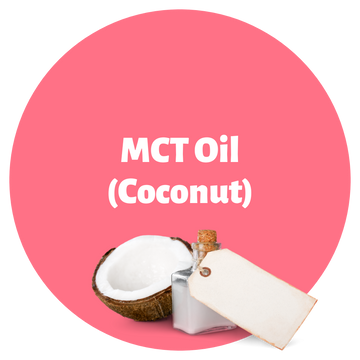
MCT Oil
MCT is short for Medium Chain Triglyceride and it is an oil that comes from highly refined coconut oil.
Benefits of MCT Oil Based on Clinical Studies
MCT has several health benefits backed by science including helping with weight loss, memory, Alzheimer’s, satiety, and even endurance for athletes and performance.
Not all MCT oils are equal.
You can get MCT oil from coconuts or palm kernels (seeds). But palm oil is considered inferior because it has less potency of a couple of key components, and it's an unsustainable crop. But, because it is pretty cheap, some keto brands use it in their formulations anyway.
Our MCT oil is derived from non-GMO coconuts because, of course it is. #onlythebest
MCT oil is so refined, it is not considered an allergen. And it’s one of the last ingredients because it’s just part of the misting process at the end as a carrier for the carnauba wax. It's also used as a carrier in one of our natural flavors instead of using a seed oil.
Our Sugar-Free Caramels
Traditional gourmet quality caramels craft-made in small batches.

Allulose Sweetener
When it comes to sugar-free sweetener ingredients, it's a landscape littered with landmines.
While allulose is newer to the sugar alternative stage, it has garnered the attention of many leading voices in the metabolic space because of its positive impact on metabolic health.
Allulose is a monosaccharide that is very similar in structure to fructose, but it is not metabolized by the body. In fact, it’s passed through the urine weirdly with zero impact. Pretty cool, eh?
It acts like sugar when cooking or baking, which makes sense because it is actually a naturally occurring rare sugar found in tiny quantities in certain fruits like raisins or figs, molasses, and even beets.
Benefits of Allulose Sweetener Based on Clinical Studies
When we started our company, there were numerous studies indicating that allulose could reduce insulin response and even assist in metabolizing sugar and carbohydrates indicating that it is suitable for diabetics.
This is why we chose allulose over any other sweetener.
But now there are HUNDREDS of studies and it's awesome.
In fact, recent research indicates that allulose stimulates natural GLP-1.
If you want to learn more, I wrote a blog post detailing the benefits of allulose and what it is.
And, of course our allulose is Non-GMO Project Verified.
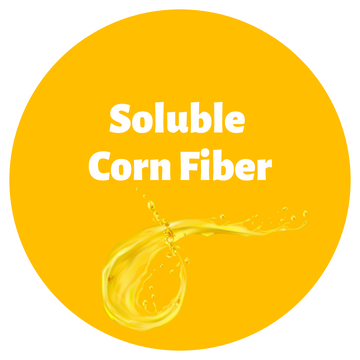
Resistent Dextrin aka Soluble Fiber
Soluble Vegetable Fiber
Our caramels are made with soluble fiber made from corn. I know. If the corn part freaks you out, stay with me for a minute because even if you’re sensitive to corn (like me), this soluble vegetable fiber is not considered an allergen.
In this case, the soluble fiber has been extracted from the corn and serves strictly as a soluble fiber. It can be deducted from the total carbs because it is not metabolized by the body.
Soluble fiber is a popular ingredient in most keto-friendly foods because it helps “move things along”, adds bulk, and is not absorbed by the body. You’ll see some form of soluble fiber on many low-sugar, keto, and diabetic-friendly foods for this reason. But some of these fibers can cause intestinal discomfort.
We chose soluble fibers that are significantly more tolerated than most other soluble fibers. In fact, studies indicate that the norm for tolerance of our chosen soluble vegetable fiber is 68g a day. As a comparison, other soluble fibers like inulin have a tolerance level of 10-15g a day. Others have even less.
Soluble fiber is a functional ingredient. The soluble fibers we use have documented benefits backed by science in hundreds of studies and over 30 years of research. It’s not just about being regular either–though that is a benefit in itself.
Benefits of Soluble Corn Fiber
Just 5g of soluble corn fiber with each meal may help reduce blood sugar levels after a meal and help minimize blood sugar spikes after a meal.
And 6-8g daily has been shown to help support intestinal regularity, relieve occasional constipation, may help nourish the intestinal flora, and maintain a healthy intestinal tract environment.
Soluble fiber helps with blood sugar response, feeds the good gut bacteria, and also helps the liver by binding to fatty bile (and all the waste it carries) so it can be eliminated through the intestinal tract with better regularity. It is a true soluble fiber and passes through the body without being absorbed or negatively impacting blood sugar.
We researched soluble fibers in exquisite detail, reading many studies personally, and in the end, decided that this was an ingredient worth including.
I even wrote a blog post on the benefits of soluble fiber if you want to read more.
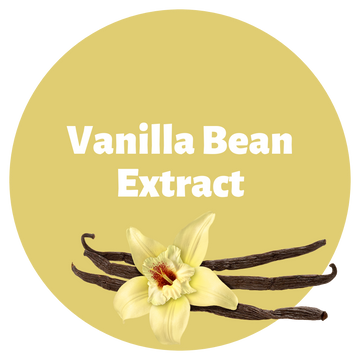
Organic Madagascar Bourbon Vanilla Bean Extract
Certain ingredients tend to come from dirty sources, whether it's the ingredient integrity itself or the manufacture processes, but also the farming and harvesting practices when it comes to the people who are in the actual fields.
As a blogger, I already had very strong opinions on these issues, and that wasn't going to change with the development of any of our recipes.
So, the vanilla we use in all of our caramel recipes is organic, Fair Trade, pure vanilla extract from real vanilla beans made by people who pay their workers fair wages and have quality manufacturing standards. There was never any other option on the table.
Also, so delicious, you can actually taste the difference.
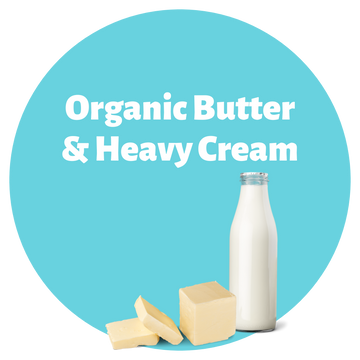
Classic, Salted & Coffee Caramels Made with Real Dairy Ingredients
Organic Butter & Organic Heavy Cream
When it comes to our traditional dairy caramels, it would have been way cheaper to use conventional cream and butter, and would even help make our product more cost competitive.
But, no. We'd rather do it the hard way. Literally.
The truth is that conventional cream and butter have residual pesticides, glyphosate, gmos and many other residual toxins from the feed the cows have been eating.
So, just no. After all, we eat our products, and so do our friends and family.
This strict adherence to these ingredients has been the trickiest aspect of our caramels since the very beginning. Mainly because conventional dairy products have their own stabilizers just by their very nature. Ugh.
But, in our eyes, there's only one choice. Certified Organic cream and butter, and not the powdered kind, but fresh. This is sometimes a logistical nightmare, but so worth it.
And hey, maybe this is why our caramels taste like the real deal?
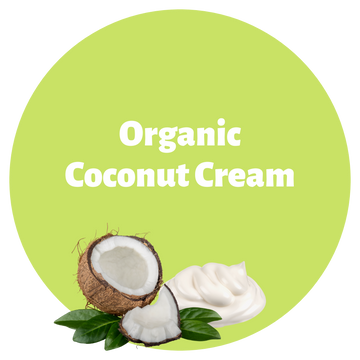
Coconut Caramels: Our Non-Dairy Option
Organic Coconut Cream
I have been dairy free at various times, and when my husband accidentally created our sugar free Classic Caramels, I insisted on a dairy free version.
So, he went into our pantry and used the only coconut cream allowed in our home.
After all, I'd learned a lot about clean organic coconut cream options long before embarking on this candy-making business.
Guar gum and carrageenan are both ingredients that can disrupt gut health and they are often ingredients in coconut cream, and even coconut milk.
But if these additives aren't an option in our household, why would we use it in our recipe for you? And, did I mention that we eat our own product?
Our Organic Certified coconut cream is not only organic, but contains no guar gum or carrageenan. Just organic coconut cream, and zero shenanigans.
This was not easy to source for commercial production, but it's a choice that was a no-brainer for our brand.
Maybe this is why our coconut caramels are reminiscent of Samoa GS cookies?
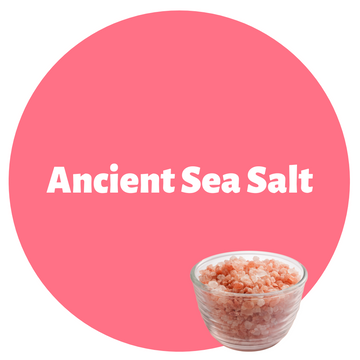
Ancient Salt
We use a little salt in all of our caramels.
You may have heard of Himalayan Pink Salt. Naturally sourced, loaded with natural minerals. Some natural sea salts contain heavy metals, even lead. We searched long and hard to find a cleaner salt that is 3rd party tested for purity.
We're proud to use natural, ancient sea salt in all of our caramel recipes.
Our best selling Salted Caramels also have crunchy bits of sea salt in them.
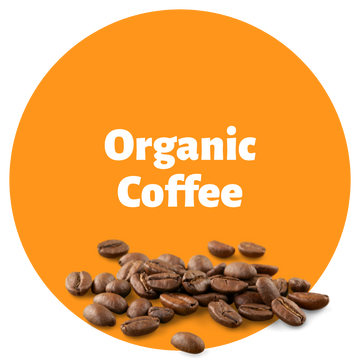
Organic Coffee
Caramels and coffee? Um, yes please.
Our Coffee Caramels were born in our kitchen (just like every other product we have). Sparked by a good idea. What if we took our Classic Caramel recipe and added coffee?
Well, yeah. You see where this is headed. We grabbed the coffee we had in our pantry (Certified Organic and Fair Trade, of course) and voila! A delicious caramel that just hits the spot after a savory meal.
There are a few food industries that are particularly dark and dirty. Chocolate, coffee beans, vanilla beans, tea, to name a few. The reality of modern agriculture methods is sometimes hard to look at. And yes, coffee is one of them. So, Fair Trade Certification is essential.
And yes, if we ever dive into chocolate, it will be a top concern, or we won't do it.
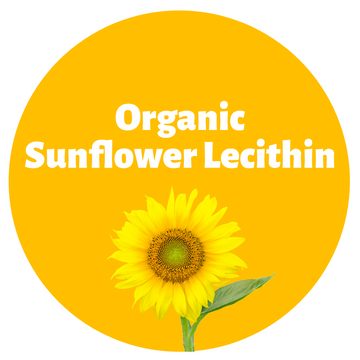
Organic Sunflower Lecithin
First things first. This is NOT a seed oil. Lecithin is not a seed oil. However, there are many types and manufacturing processes that are just as bad as the processes used in seed oils.
Lecithin is an emulsifier. It is an ingredient used to help water soluble ingredients and fat soluble ingredients "get along" in the recipe so they are one cohesive bit of delicious goodness. Otherwise they separate and do weird things. And no one wants to eat weird things.
Eggs are a natural emulsifier that have been used for generations.
We found out quickly that our delicious caramels could not even last a week in the real world without some help. This was the only time we needed a food scientist to guide us. Enter lecithin.
This led to some very deep diving into lecithin (because I thought it was similar to seed oils too), and all the aspects of it.
We didn't want to add ANY preservatives or emulsifiers (I likely read and follow the same ingredient investigators you do). But, it had to be done or we would have discontinued the caramels altogether.
This led to exhaustive research.
Let's break down lecithin. There's soy lecithin, egg lecithin and sunflower lecithin. Still, not seed oils, guys.
Soy lecithin and the process of making it is super dirty--even non-GMO soy lecithin (besides, I'm allergic to soy anyway).
Egg lecithin is finicky and also an allergen for so many.
Which led me to sunflower lecithin (which can be dirty too). So, we looked long and hard, and sourced a cleanly made organic sunflower lecithin with none of the dirty.
This is, hands down, our most expensive single ingredient in any of our products.
Our sunflower lecithin is cold press extracted from organic sunflower seeds. It is clean and does a beautiful job of keeping our cream, soluble fiber and allulose harmonious.
Which is the only reason we still have caramels in our product family today.
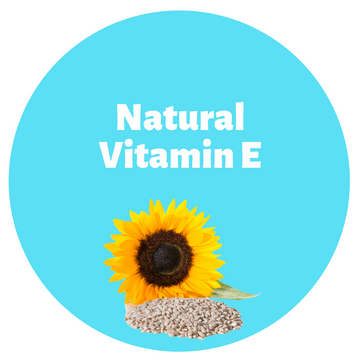
Natural Vitamin E
Did I mention how much I dislike adding ingredients to our products? Every ingredient has to be researched and vetted.
However, when you have fresh organic cream and butter, or organic coconut cream with no additives, you need antioxidants.
Antioxidants are used to counteract the oxidation of the organic fats in our caramels (so they don’t go rancid in transit or storage).
We learned this the hard way, and if you ever had our caramels before this after a long trip in transit in the summer, we're truly sorry.
This, of course, led to many hours of research, lots of phone calls and asking for complete ingredient specs from every possible supplier and manufacturer.
Also, a muddy arena, I'm afraid.
But, as providence would have it, there's always a bright light if you look hard enough. And we sourced a natural vitamin E that is produced the way we would, if we made it.
Cleanly extracted from Non-GMO certified sunflower seeds using molecular distillation (no high heat extraction), and physical distillation (as opposed to chemical distillation).
We use the slightest amount possible to help our caramels through the hardest months and transit/storage situations (which is why it's the very last ingredient on our label).
There are many kinds of Vitamin E (tocopherols), and they can come from various sources, even synthetic.
But, as usual, I insisted that if we truly needed this ingredient, it had to be clean and from a natural source, without toxins.
This is the only “preservative” we were willing to use as it is a true antioxidant sourced from nature and processed cleanly.
And, in case it occurred to you after reading all these, yes, I will probably write a book someday on clean manufacturing and ingredient sourcing.
Sweet & Buttery Pancake Syrup
Our nod to the original diner style pancake syrup. Just 4 ingredients.
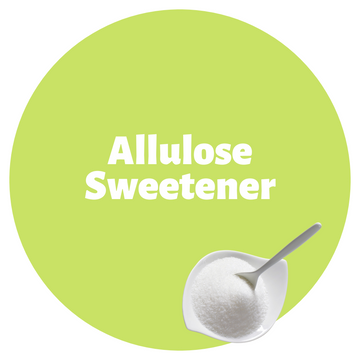
Allulose Sweetener
Traditional non-maple pancake syrup recipes have been around for over 100 years. It's easy to make (for the most part) and mostly sugar. Well, allulose is a sugar. It's just not metabolized by the body.
It bakes like sugar. Browns like sugar. And is the perfect base for any syrup recipe. So, naturally, this is what we did.
While allulose is newer to the sugar alternative stage, it has garnered the attention of many leading voices in the metabolic space because of its impact on metabolic health. Blood sugar friendly, and delicious, with no weird aftertaste too.
Allulose is a monosaccharide that is very similar in structure to fructose, but it is not metabolized by the body. In fact, it’s passed through the urine weirdly with zero impact. Pretty cool, eh?
It acts like sugar when cooking or baking, which makes sense because it is actually a naturally occurring rare sugar found in tiny quantities in certain fruits like raisins or figs, molasses, beets.
Benefits of Allulose Sweetener Based on Clinical Studies
When we started our company, there were numerous studies indicating that allulose could reduce insulin response and even assist in metabolizing sugar and carbohydrates indicating that it is suitable for diabetics.
Now there's hundreds of studies on ways this sweetener scan support the metabolism and weight loss journey.
This is why we chose allulose over any other sweetener.
I also wrote a detailed blog post detailing the benefits of allulose and what it is.
And, of course our allulose is Non-GMO Project Verified.
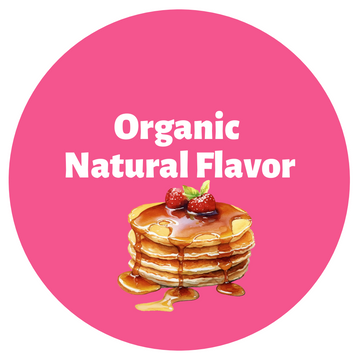
Organic Natural Flavor
Crafting a diner pancake syrup flavor that doesn't spike blood sugar, meant that we needed to turn, once again to natural flavors.
Of course, artificial flavors were never on the table. For many reasons. But, we've found that we can still get good flavor from natural flavors.
Since “natural flavors” can have a lot of nonsense in them too. We opted to go organic and had our flavors custom formulated, and as with our gummy bears, with a strict list of no-no's.
No maltodextrin, polysorbate 80, GMOs, allergens, or ingredients that could spike blood sugar or affect ketosis.
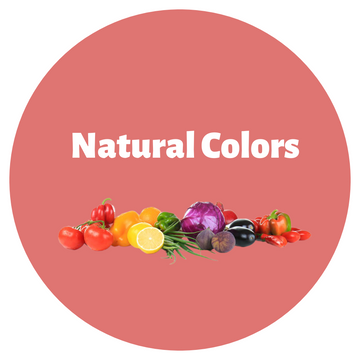
Non-GMO Natural Colors
Nearly every pancake syrup on the market has Caramel Coloring. We don't eat foods with caramel coloring because it's a super shady ingredient, and even a carcinogen. Which is why we started making our own at home.
Allulose syrup is light, but we do eat with our eyes first, and a pancake syrup is usually dark. So, I decided to see if we could make ours look like traditional syrup with natural colors from real fruit and vegetable sources and NO caramel coloring. Ta-da!
The last ingredient is a touch of ancient sea salt. It brings out the flavor and creates that satisfying something many sweet foods can benefit from.
Our pancake syrup is our FAVORITE product to do tastings with because most people have given up on finding something really good. We did not. You're welcome. ;-)
